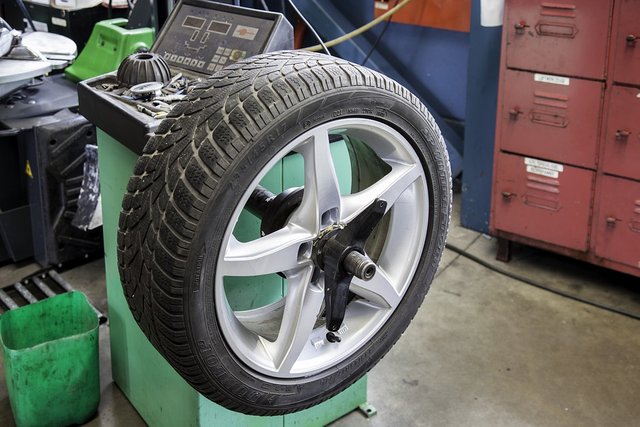Know the tires of your vehicle // make sure you arrive alive


A high percentage of the inhabitants of the planet, moves from one place to another making use of vehicles, either through public transport or own units, and in many opportunities these means of automotive transport are used without checking the physical conditions in the one that is his tires, being these of vital importance to conserve the physical integration of all the members of the crew.
It is regrettable that there are still man-made customs that are difficult to change and that when it is decided to do so it is too late. The issue of road safety is a topic debated worldwide, since every day there are more victims who charge traffic accidents: the poor physical condition of the tires, one of the biggest causes of accidents, at least in these last months in Venezuela, perhaps due to the current economic situation in this country and the high acquisition costs of all the component parts of these automotive units.

In tonality with this order of ideas we have:
What factors should be known or taken into account in the tires?
It is natural that when we have the purchase or acquisition of new tires for our vehicle, let's start with a market study, but this study in addition to quoting prices, should also consider the following elements: date of manufacture, maximum inflation pressure, traction , wear, maximum load capacity per tire, speed range, temperature resistance and tire size.
Traction: ability of the tire to stop in wet areas. Being the one of greater degree the one that counts on greater capacity to stop itself. Your measurement is given by "AA", "A", "B" and "C"
Wear: a number that reveals the rate at which the tire wears, knowing that the greater the degree of wear and vice versa, that is, the greater the degree of wear; to a lesser degree greater wear.
It is also important to note that the tires expire 4 years after the date of manufacture, which we can see stamped on one side of the tire. It is a 4-digit number (example: 06 17) that indicates the week and year in which it was manufactured, that is, the 6th week of 2017, therefore, in this example, the expiration of this tire would be February 2021 .
Based on the foregoing, it is recommended not to use expired tires, as there is a possibility that these may explode, causing or causing an accident, which could be very serious and even fatal.
It is also important to validate the inflation of the tires and be very aware of their calibration, since there is a habit of lowering the PSI when traveling, (taking the road for long journeys), with the idea that with the warming of the route the pressure will rise again, then do not allow this, because you would make a mistake.
To know the inflation range of the tire you can see one side of the tire, where you will find the maximum inflation pressure allowed for that particular tire, remember that it is acceptable to have your tires a few pounds below the maximum pressure, but not for a long period of time, because at lower pressure the temperature of the tire increases and excessive heat damages them. Many tires are designed for different pressures. Which you can see in a small number attached to the wheel on one side of the tire, it is recommended never to exceed this pressure.
Another important point to consider is the load to which our tires are subjected. It is advisable not to overload the vehicle, since exceeding the maximum load capacity in a tire can result in its failure and could cause an accident. The load index is next to the speed range.

What does the nomenclature of letters and numbers that normally are supplied when buying a tire mean?
When we go to a tire distributor we always supply a series of data such as: P 265/60 R 18, which means the following:
P: Pneumatic for passenger vehicle
265: Tire width in millimeters
60: Ratio of the height to the width of the tire, 60% of the width in this case
R: Radial tire
18: Rin of 18 Inches
A pleasure ... @ willians ...
source of image